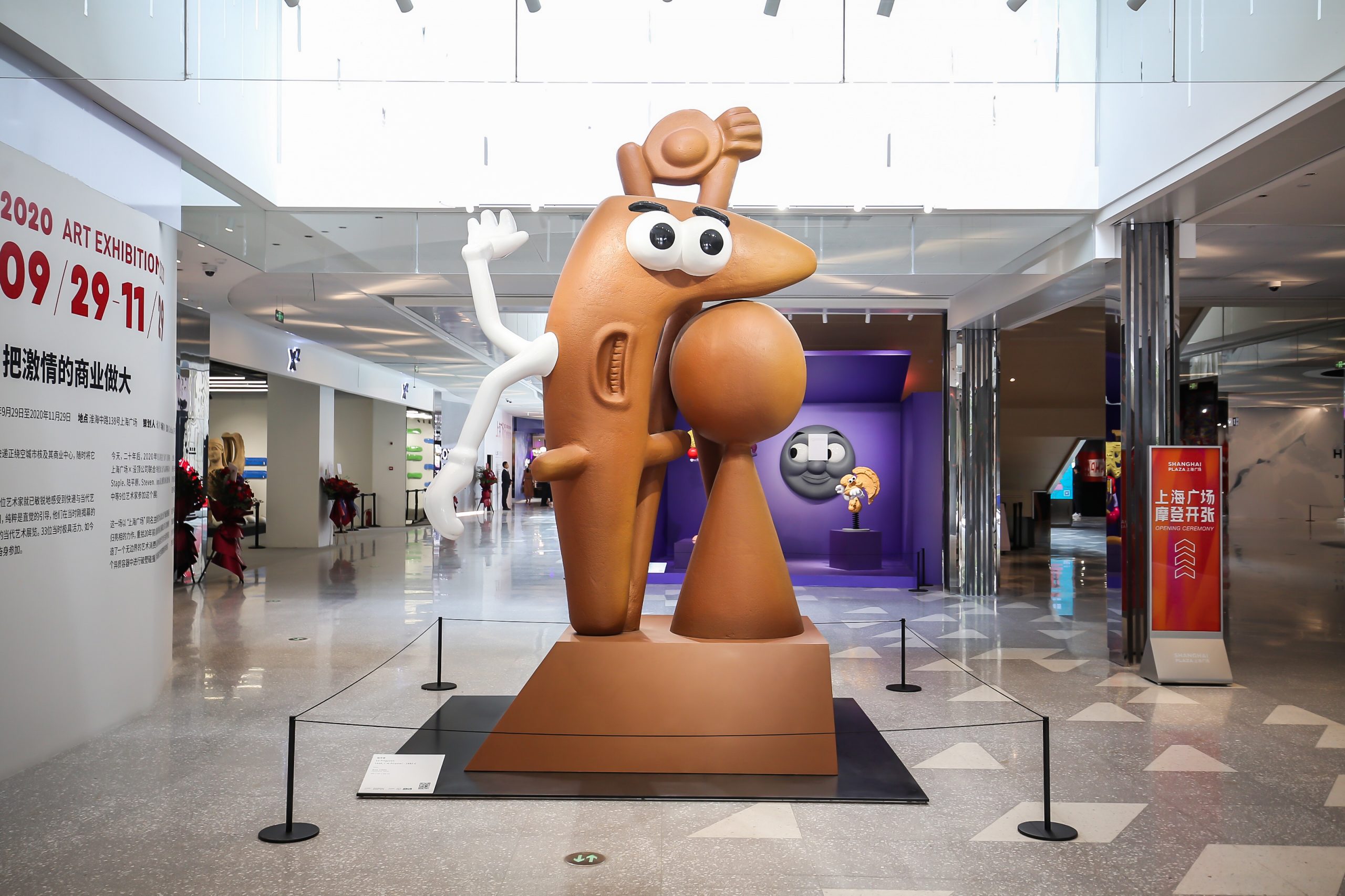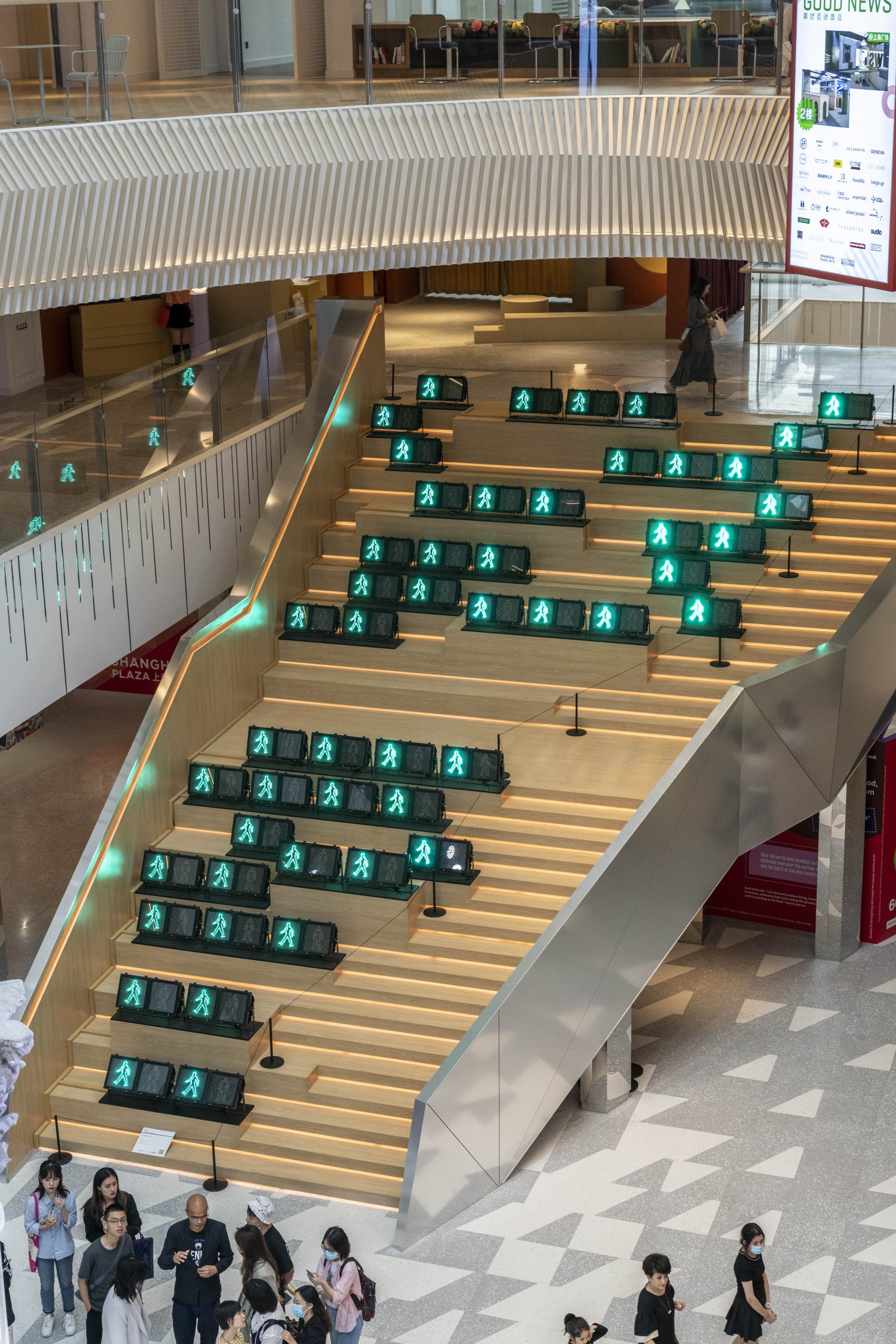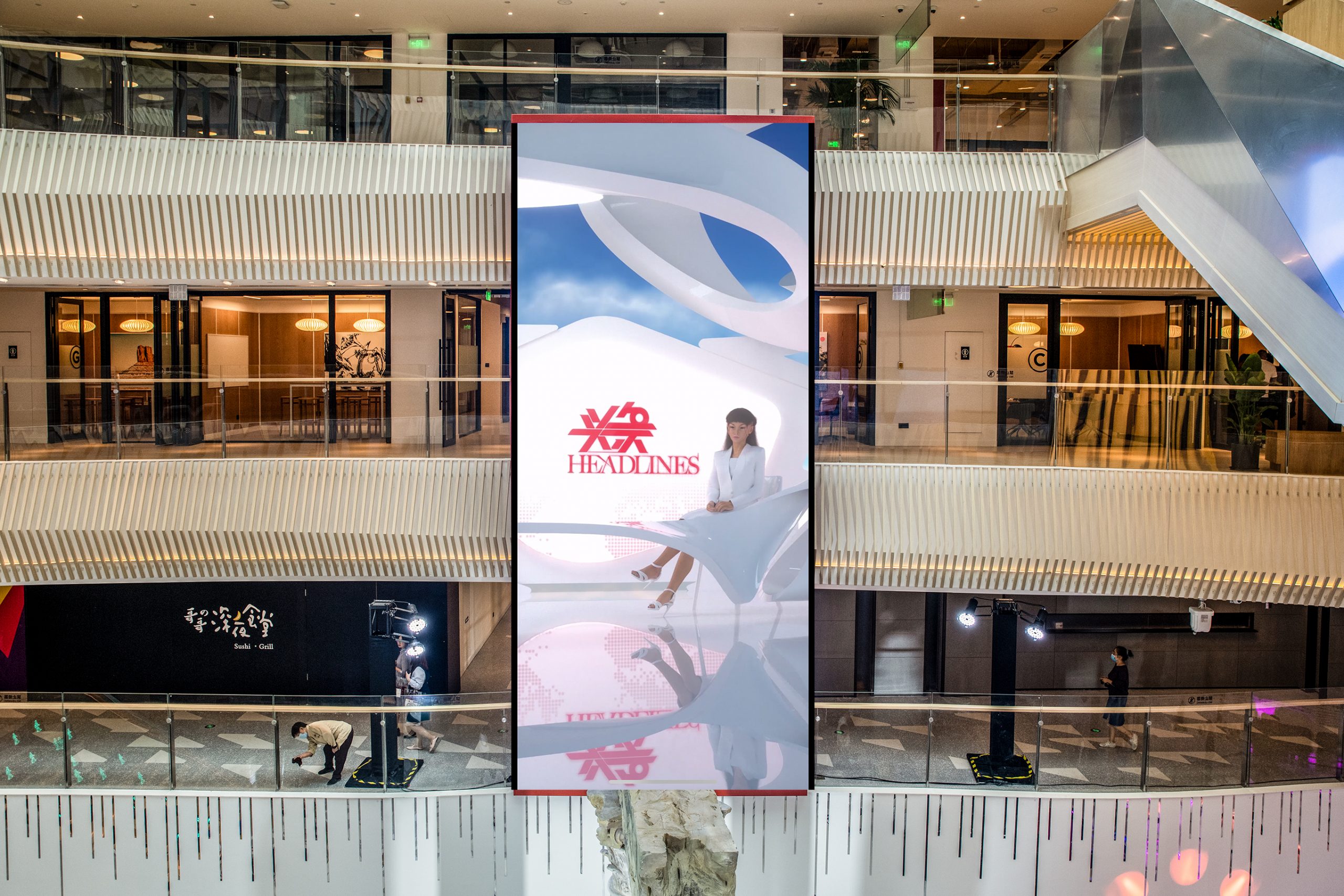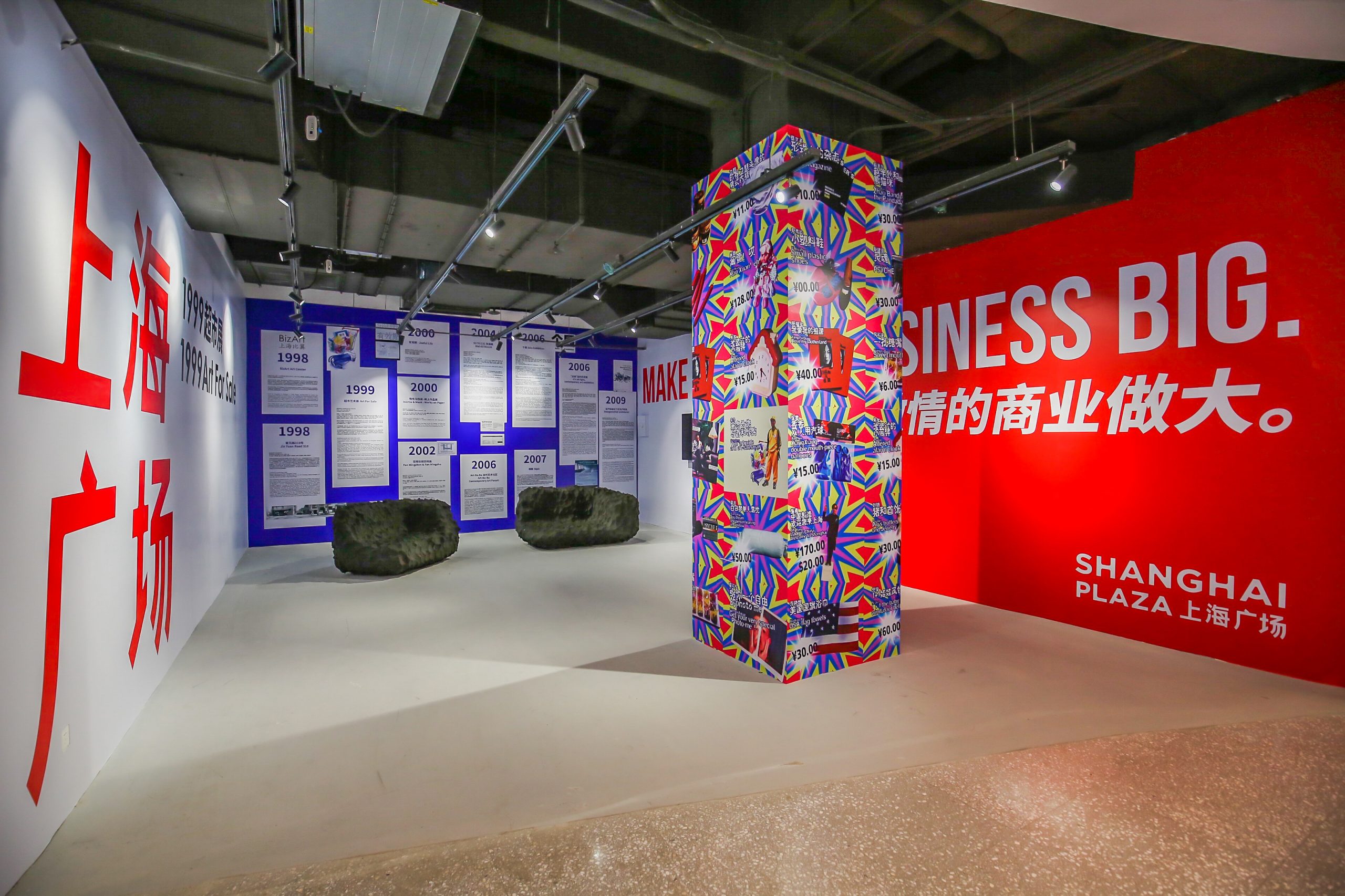In the era of cloud computing, commodities are brought to a faster speed. Express delivery is circulating around the urban core and its commercial centers, turning them into an electronic City God Temple at any time.
As early as in the last century, Alexander Brandt, Yang Zhenzhong and Xu Zhen have keenly noticed the imminent relationship between delivery service and contemporary art. On April 10th, 1999, solely guided by intuition, the three artists curated a contemporary art exhibition titled “Art For Sale” at the then recently inaugurated “Shanghai Plaza”. Thirty-three contemporary artists who were at the time fueled with passion and now extremely influential rushed to participate in the exhibition.
Today, twenty years later, on September xx, 2020, at the exact same “Shanghai Plaza”, we are presenting a contemporary art exhibition jointly organized by Shanghai Plaza X MadeIn Company: “Shanghai Plaza”. There will be 9 artists participating in this exhibition, including Chen Li, Jeff Staple, Lu Pingyuan, Steven Harrington, Shang Liang, Slime Engine, Xiang Liqing, XU ZHEN® and Yang Zhenzhong.
This grand opening art exhibition themed after its venue “Shanghai Plaza”, is the masterpiece of Shanghai Plaza’s return after its commercial renovation, revisiting its avant-garde spirits seen at “Art For Sale” 20 years ago. For the first time and with innovation, the re-opened Shanghai Plaza creates a borderless space for art and consumption. While cutting-edge contemporary art culture and lifestyle aesthetics space at home and abroad collide in this heterogeneous container, what kinds of unpredictable variable will art and commerce generate and how will they spark?
At the end of last century, there were plenty of art museum space that could be used — why would intuition drag the artists to a commercial space to curate an exhibition? They are still obsessed with it, and still focus on it — what kind of logistics aesthetic is working them? What excitement they want to join in, we do not know — do they know it themselves? It seems that only the audience of this exhibition can answer the questions.
In this Internet era that is constantly upgrading, we still have to do business with passion, do passional business, and turn business into passion, because that is art-making and exhibition-planning. “Commerce of Passions” is how the famous utopian socialist, Charles Fourier, addresses art. He regards art as a broader business, as a business in a biological economy, a political economy, a libido economy, a contribution (anti-entropy) economy other than the capitalist economy. “Art For Sale” in 1999 had raised this question: Why not? In the age of stacking, contemporary art has to be such commerce of passions: through such exchanges, everyone has equal rights in front of automatic machines, express parcels and mobile phone screens; at the same time, it recognizes and encourages different workers to equally contribute to public welfare, so that everyone can freely devote themselves to the cause they love.
This is because the use of contemporary art to transform urban core and its commercial space must not only support the re-appropriation of wealth by all residents as co-authors of the city, but also re-utilize all concurrent estate in the city by building a dominant force, restoring their original use values, in order for cities to become everyone’s common currency, and everyone’s own art-text.
Therefore, at present, this art and commerce project with “Social, Vision and Playfulness” as the main axis is realizing an ideal: with culture and art as t thread, international vision as pattern, in the commercial space to explore interactive relationships among humans, between human and consciousness domains, and between human and urban space.
In addition to incorporating contemporary art, the “Shanghai Plaza” project is also engraved in history. It started in the east section of Huaihai Middle Road, and this year marks the 120th anniversary of its construction. In the long axis of time, it is the background of past prosperity, and also a testimony to the values of new generations. This is for the first time a business model integrates consumption, office, art, culture, creativity and other dimensions into one. It is an attempt to wrap around life with “fineness”, and “fineness” has already surpassed the previous customary definition, demonstrating further connotations and directions beyond.






